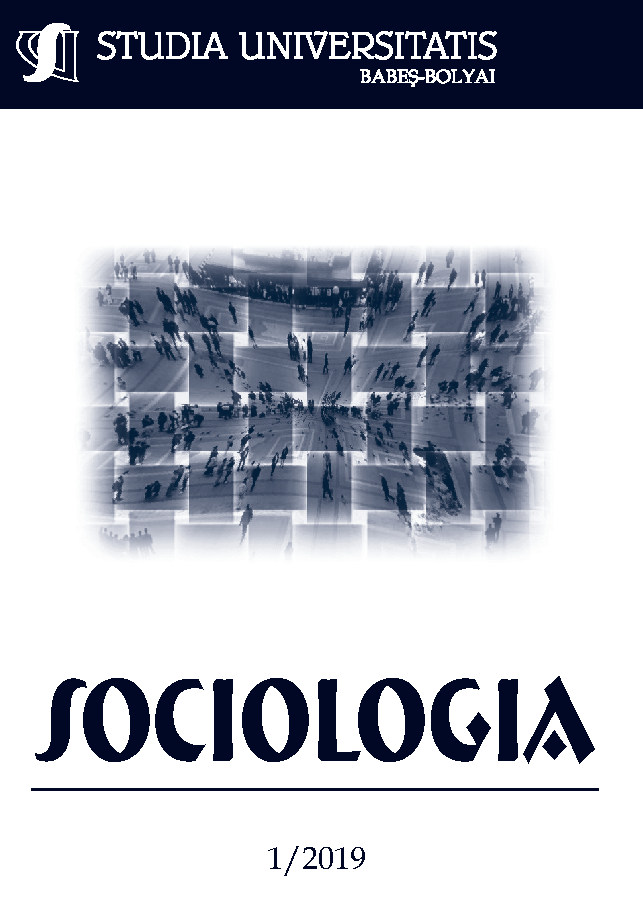FORMS OF REMUNERATION FOR FREE SOFTWARE PRODUCTION: A REDUCIBLE COMPLEXITY
DOI:
https://doi.org/10.2478/subbs-2019-0005Keywords:
Information society, free software, digital production, commons, capitalism.Abstract
How producers of free digital goods can be compensated for their labour is a major topic of debate and controversy in Free Software and related fields. This paper analytically disentangles the multiple modes of remuneration in operation in Free Software and presents the implications from a political economy perspective. The outlook of autonomous commons-based production in information goods is situated in relation to capitalism. In the process, certain conceptual contributions are made regarding the nature of information goods and the commodity form.References
Barbrook, Richard (2000). Cyber-Communism: How the Americans are Superseding Capitalism in Cyber Space. Science as Culture. 9 (1): 5-40.
Barbrook, Richard (1998). The Hi-Tech Gift Economy. First Monday, 3 (12).
Bastani, Aaron (2019). Fully Automated Luxury Communism. London, New York: Verso.
Bauwens, Michel (2005). The Political Economy of Peer Production. 100 Days of Theory. www.ctheory.net/articles.aspx?id=499.
Castells, Manuel (1996). The Rise of the Network Society. The Information Age: Economy, Society and Culture. Vol. I. Oxford: Blackwell Publishers.
Free Software Foundation (2018). What is Free Software. https://www.gnu.org/philosophy/free-sw.html
Kantrowitz, Noah (2015). Funding FOSS. https://coderanger.net/funding-foss/.
Merchant, Brian (2015). Fully automated luxury communism. https://www.theguardian.com/sustainable-business/2015/mar/18/fully-automated-luxury-communism-robots-employment.
Orsi, Cosma (2009). Knowledge-based Society, Peer Production and the Common Good. Capital & Class, 97: 31-51.
Parijs, Philippe (2004). Basic Income. Politics & Society 32 (1): 7-39.
Peer to Peer Foundation Wiki. Basic Income. http://p2pfoundation.net/Basic_Income.
Practical Elegance Blog (2013). Confessions of a Job Destroyer. https://web.archive.org/web/20161022094048/ http://decomplecting.org/blog/2013/03/11/confessions-of-a-job-destroyer/.
Raymond, Eric (2001). The Cathedral and The Bazaar: Musings on Linux and Open Source by an Accidental Revolutionary. Sebastopol: O'Reilly and Associates, Inc.
Rigi, Jakob (2013). Peer Production and Marxian Communism: Contours of a New Emerging Mode of Production. Capital & Class, 37 (3): 397-416.
Rigi, Jakob (2014). The Coming Revolution of Peer Production and Revolutionary Cooperatives. A Response to Michel Bauwens, Vasilis Kostakis and Stefan Meretz. tripleC, 12 (1): 390-404.
Ristau, Julie (2011). What is Commoning, Anyway? https://www.onthecommons.org/ work/what-commoning-anyway.
Rose, Carol (1986). The Comedy of the Commons: Commerce, Custom, Inherently Public Property. The University of Chicago Law Review, 53: 711-781.
Schneider, Nathan (2015). Why the Tech Elite Is Getting Behind Universal Basic Income. http://blog.p2pfoundation.net/why-the-tech-elite-is-getting-behind-universal-basic-income/2015/02/24.
Scholz, Trebor (2016). Platform Cooperativism. New York: Rosa Luxemburg Stiftung.
Stallman, Richard (1985). The GNU Manifesto. https://www.gnu.org/gnu/manifesto.en.html.
Stallman, Richard (2010). Free Software, Free Society. 2nd ed. Boston: GNU Press.
Wikipedia. Attention Economy. https://en.wikipedia.org/wiki/Attention_economy.
Downloads
Published
How to Cite
Issue
Section
License
Copyright (c) 2019 Studia Universitatis Babeș-Bolyai Sociologia

This work is licensed under a Creative Commons Attribution-NonCommercial-NoDerivatives 4.0 International License.



